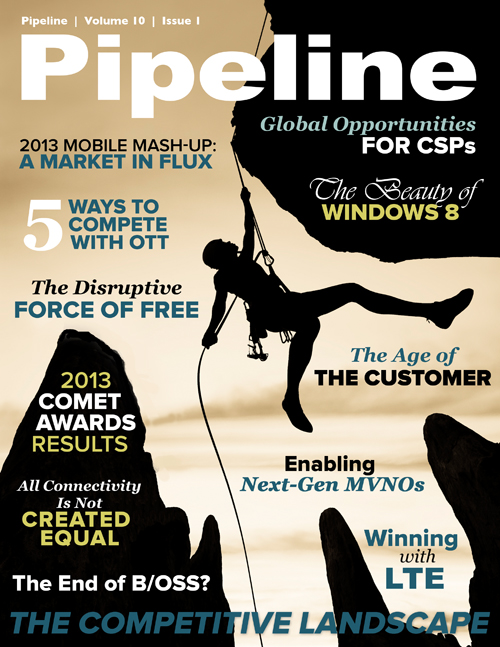Communications IT News
Wayne Thorsen, vice president of global partnerships for Telefónica Digital, noted the significance of the partnership in a company news release. “We strongly believe that carrier billing has the potential to drive the monetization of digital content. Partnerships like this allow us to harness the power of the billing relationships we have with our customers to make it easier for them to consume content on their tablets and mobile devices.”
Elsewhere, Orange Business Services and the T-Systems division of Deutsche Telekom have teamed up to boost international videoconferencing options, granting customers who use the latter’s Corporate Video Exchange Services the ability to meet in real time with customers of the former’s Telepresence Community, and vice versa.
One CSP partnership story did originate in the US in May. Dish Network, the satellite-based multisystem operator (MSO) that’s currently bidding on both Sprint and Clearwire, struck a deal with nTelos Wireless to pursue a converged fixed-wireless broadband offering. Charlie Ergen, the press-savvy cofounder and chairman of Dish, shed some light on the proposed service in a press release, indicating that it will first address the needs of a frequently overlooked demographic. “By working with nTelos, we believe we can create a service that simultaneously addresses the mobile and in-home requirements of rural residents, with the potential to serve as a model for how we can utilize spectrum more effectively while creating differentiated consumer offerings.”
Finally, in mid-May three major players in the field of operational support systems (OSS) formed an initiative of their own: NSN, Ericsson and Huawei signed a memorandum of understanding (MoU) to kick off the OSS Interoperability Initiative, or OSSii. This is just the kind of innovation Pipeline has been suggesting for years, but how deep will it actually go? It all depends on how many vendors sign on, and how open they’re willing to be.
Peter Patomella, head of OSS business at NSN, commented on the need for a standardized platform in a statement from the company. “The OSS marketplace is a patchwork of standards and proprietary interfaces that are controlled by the IPR [intellectual property rights] owners,” he said. “With cross-license agreements, we want to help operators take full advantage of the best available products in our industry. Openness and fairness have been the guiding principles in the agreement of the OSS Interoperability Initiative.” And in a statement from Ericsson, Thomas Norén, VP and head of product area radio, added that the initiative “will stimulate innovation in network management and cut costs for our customers, which is great.” To learn more about OSSii, visit its web portal.
Movement in M2M
Machine-to-machine communications (M2M) represents a ripe field of opportunity for service providers, and, as expected, more and more M2M news pours out of providers’ PR departments each month as the landscape begins to stabilize. Several CSPs made M2M-related announcements in May, including Deutsche Telekom, which demoed a turnkey solution aimed at auto insurance companies that has everything from a tracking module and SIM card to platform services, giving insurers the means to offer “pay as you drive” coverage.
AT&T expanded its relationship with IT service provider Wipro in order to drive greater uptake of M2M solutions in verticals where there’s been limited traction thus far. The two companies will work to develop M2M solutions and ideas for systems integration that span all of the top industries. Kathryn Weldon, principal analyst for enterprise mobility at Current Analysis, believes the pact will improve M2M penetration. “The expanded relationship with Wipro will further enhance AT&T’s ability to provide custom, industry-specific solutions that leverage Axeda’s application platform, providing greater benefits to clients,” she said in a news release.
Additionally, Comarch’s M2M platform booked a win with Telekom Austria as a solution that will support future revenue models—multiple tenancy, currency, language, etc.—enabling the CSP to offer international M2M services and earning Comarch a coveted 2013 Pipeline COMET award in the category of Innovation in Connectivity.



















